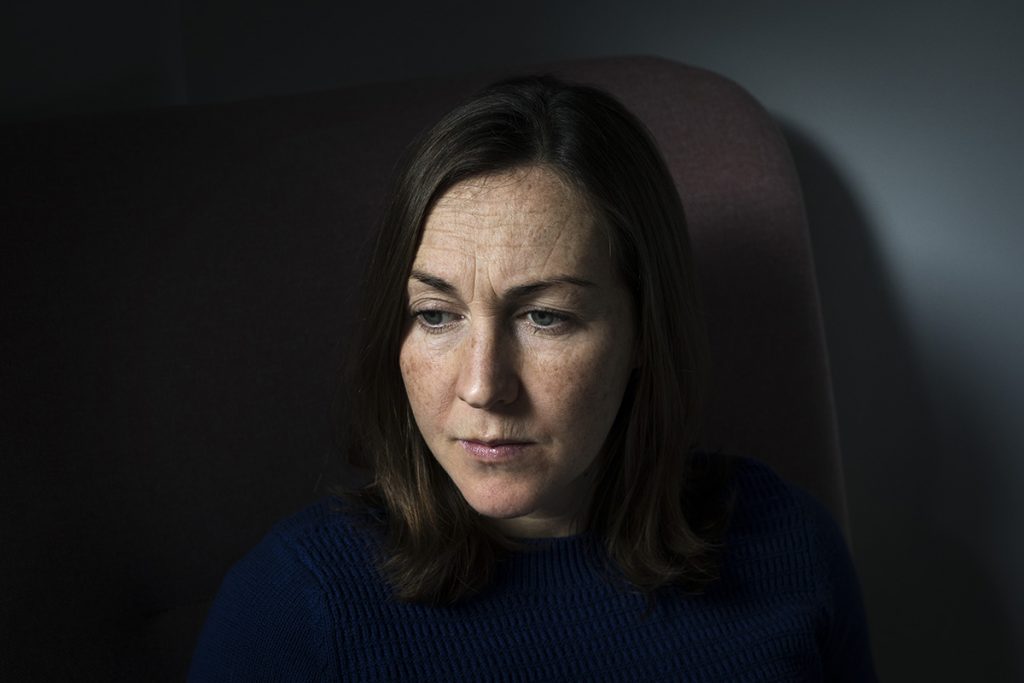
Last month, Megan Brown was featured in a Globe & Mail cover story in which she disclosed her University of Guelph track coach had allegedly groomed her for sex. Today, the 35-year-old tells Ben Kaplan she has some thoughts on how running can do a better job policing itself.
MB: I have a baby asleep in my arms right now so I can’t talk on the phone, but if you wanted to do an informal back and forth over email, I could answer questions in real time. I find that’s where the magic is anyways. Something that’s engaging for both of us.
BK: You have a baby asleep in your arms right now. Why don’t you take us up to date with your life?
MB: Well, life has changed pretty drastically for me in the last few months. My husband and I relocated to beautiful BC in late November and I gave birth to my daughter, Grace, at the end of January.

BK: Good to see you are thriving. I don’t think I realized you were pregnant at the time of the first piece. You must have been feeling so much.
MB: The timing was pretty surreal, actually. Michael [Doyle, Globe & Mail reporter] reached out to me the week after my husband and I moved out here, and the article came out the week after Grace was born. Thankfully, I have a lot of trust in how the universe works, but even then it was a test of faith on many levels.
BK: You have a daughter. Would you let her run track?
MB: I would like to think that I would support any interest or passion that she has. However, would I enroll her in track and field? That’s an entirely different question. And one that makes me quite emotional, actually…
BK: Of course, and sorry—obviously. I want to be generous and sensitive, but also ask you things I think the readers want to know. It makes you emotional because you love track, but also because it provided an area for you to be abused, and a system that allowed it to carry on.
MB: Don’t shy away from any questions. Emotions don’t scare me at all. It’s where the truth often lies. And yes, it makes me emotional because I have such a deep love for running, but it is also the source of a lot of pain for me. (And again, don’t be afraid to get personal. I’m an honest truth teller and so desperately want to have more meaningful conversation).
BK: You’ve grown up and spent your life in our sport. Are there more stories like yours just waiting to come out? I know for a fact that we published one by Clara Langley a few weeks after your story—not about a coach, but about another elite male runner.
MB: I can only comment on what I have personally experienced, but I imagine there are countless other stories similar to mine. Abuse of power has been rampant in our sport.
BK: You’re brave and put your name to ending systemic abuse. Where do we go from here? (In other words, how can we—or can we even—create a place where you’d be thrilled to have all of our daughters lace up their spikes?)

MB: I think we take things one step at a time and see where it all leads. I know that I feel very hopeful in the changes that are trying to take place in sport (and society as a whole). It feels messy right now, but that’s only because we are uncovering the shadows that have been driving our sport for a lot of years. Once we expose these shadows, we are already well on our way to a better sport.
I wish I had something concrete for you, but I truly believe the “change” is in seeing what we couldn’t see before
BK: I love that. And I appreciate your taking the time to talk to me. This magazine, for the most part, goes out to weekend runners, many of whom have been moved by your story. Can you feel our support?
MB: I certainly can, and it has brought me such immense healing. So thank you.
This article appears in iRun’s first issue of 2020. Read the entire issue here.
.





 Current Issue
Current Issue Previous Issue
Previous Issue Prior Release
Prior Release
